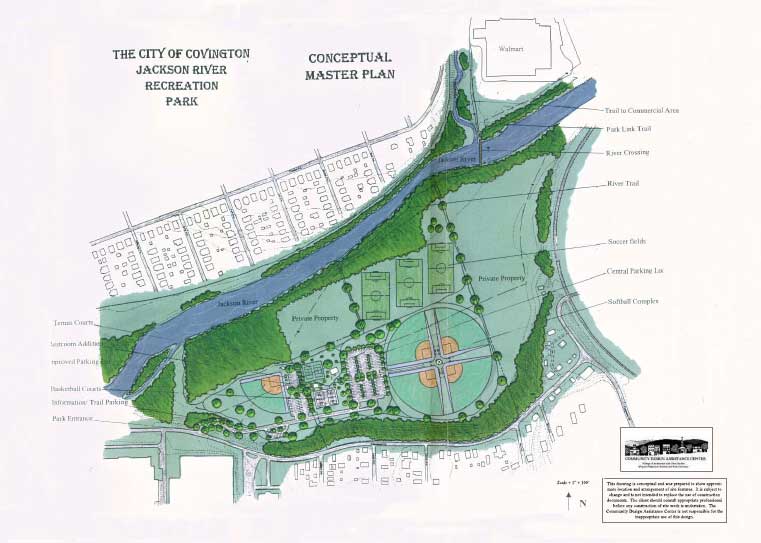Community Design Assistance Center receives Valley Conservation Council award

The Virginia Tech Community Design Assistance Center (CDAC), an outreach center of the College of Architecture and Urban Studies, was awarded a Better Models for Development Award for Excellent Public Amenity for the City of Covington's Jackson River Recreational Sport Complex from the Valley Conservation Council.
The award recognizes CDAC’s conceptual design for its important contribution to quality of life in the City of Covington and the way it balances economic growth, community needs, and environmental sensitivity. The Better Models for Development Awards recognize new development projects that add to the Shenandoah Valley’s quality of life, environmentally as well as economically.
The Valley Conservation Council is a nonprofit organization and land trust, serving 11 counties from Frederick to Botetourt in Virginia. The council’s mission is to promote land use that sustains the farms, forests, open space, and cultural heritage of the Shenandoah Valley region of Virginia.
CDAC’s conceptual master plan for the City of Covington’s Jackson River Recreational Sport Complex was funded in part through a grant from the Virginia Department of Forestry’s Urban and Community Forestry program.
The College of Architecture and Urban Studies is one of the largest of its type in the nation. The college is composed of three schools and the Department of Art and Art History, part of the multi-college School of the Arts. The School of Architecture + Design includes programs in architecture, industrial design, interior design, and landscape architecture. The School of Public and International Affairs includes programs in urban affairs and planning, public administration and policy, and government and international affairs. The Myers-Lawson School of Construction, a joint school of the College of Architecture and Urban Studies and the College of Engineering, includes programs in building construction and construction management. The college enrolls more than 2,000 students offering 25 degrees taught by 160 faculty members.




